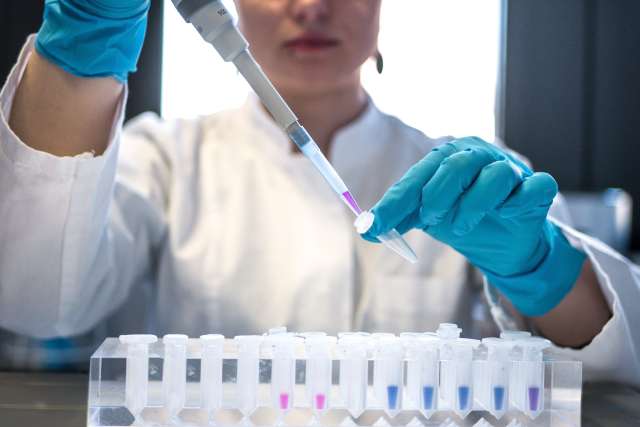Two UCLA Health urologists have been awarded the Young Investigator Award from the Prostate Cancer Foundation to support work in improving the diagnosis and treatment of prostate cancer. Dr. Adam Weiner and Dr. Wayne Brisbane are among twenty-eight researchers receiving the awards totaling $6.1 million.
Weiner, a urologic oncology fellow at UCLA Health, has been awarded a 3-year, $225,000 award to support research into personalized prostate cancer treatment. The grant will fund Weiner’s work analyzing prostate-specific antigen (PSMA) levels measured by advanced PET imaging to match patients with the treatments most likely to succeed based on their individual cancer characteristics.
The project aims to address a major challenge in prostate cancer care - the variability between patients in how aggressive the cancer is and how it responds to different therapies. Currently, it is difficult to predict up front which treatments will work best for which patients. The new work aims to utilize PSMA PET scans to change this paradigm.
"We now have the ability to visualize prostate cancer anywhere in the body via PSMA PET imaging. But I believe PSMA can give us much more information to guide personalized treatment decisions," said Weiner. "This award from PCF will help us to unlock PSMA's potential as a biomarker for tailoring care to each patient's specific cancer profile."
Weiner’s project will analyze PSMA levels from PET scans and tumor samples from over 7,000 patients. By linking PSMA imaging results to underlying tumor genetics. Weiner aims to identify biological patterns that predict treatment response.
"Determining the best treatment plan for each patient from the start could greatly improve outcomes for prostate cancer," said Weiner. "We are extremely grateful to PCF for supporting our search for tomorrow's precision medicine tools today."
Brisbane is an assistant professor of urology at the David Geffen School of Medicine at UCLA and a member of the UCLA Health Jonsson Comprehensive Cancer Center. His research centers on the use of Micro-Ultrasound, a high-resolution transrectal ultrasound method that offers a cost-effective yet highly sensitive approach to visualizing prostate cancer. Micro-Ultrasound is not only far more affordable than MRI, but it also maintains similar cancer visualization sensitivity. However, one challenge with Micro-Ultrasound is its limited cancer specificity, as it can sometimes misidentify dense benign tissue as cancerous.
In his project, funded at $225,000 over 3 years, Brisbane and his team are focusing on refining the Micro-Ultrasound method to improve its specificity. They are developing a machine learning-based image analysis algorithm that considers various patient factors, including age, PSA levels, digital rectal examination findings, prostate volume, and whole gland Micro-Ultrasound images. This algorithm will help risk-stratify patients after PSA screening, providing a more accurate assessment of their potential for prostate cancer.
Additionally, the research team will conduct a comparative analysis of Micro-Ultrasound versus MRI, evaluating the specificity and sensitivity of each method. They will also explore the possibility of incorporating a urine-based biomarker test to further enhance the specificity of prostate cancer diagnosis.
“One of the unique aspects of our research is the investigation into the biological and molecular characteristics of tumors visible on both MRI and Micro-Ultrasound, compared to those visible by only one modality,” said Brisbane. “This comparative approach may shed light on the distinct advantages and limitations of each diagnostic method.”
The Prostate Cancer Foundation created the awards to support investigators – generally age 35 or younger – in postdoctoral fellowships or junior faculty positions whose careers are dedicated to the field of prostate cancer.




